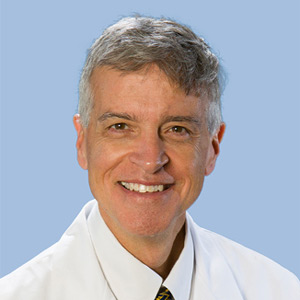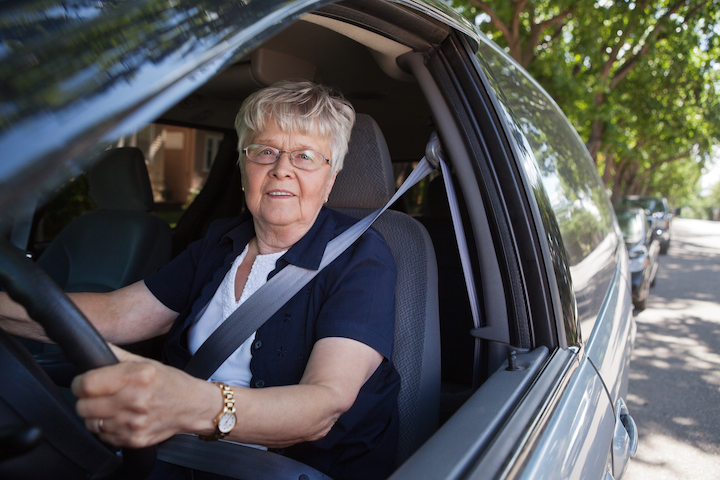
Recommended by James E. Malone, DO, family physician with Bridgeport Family Healthcare.
Many people make assumptions about aging, what it is like to grow “old”, and how older age will affect them. However, as we are getting older, it is important to understand the positive aspects of aging. Research has shown that you can help preserve your health and mobility as you age by adopting or continuing healthy habits and lifestyle choices.
“As adults age, it is natural for them to become concerned about their cognitive abilities,” said James E. Malone, DO, with Bridgeport Family Healthcare. “Often times, it is only mild forgetfulness, which is a normal part of the aging process.”
1. Depression and loneliness are normal in older adults.
As people age, some may find themselves feeling isolated and alone. This can lead to feelings of depression, anxiety, and sadness. However, these feelings are not a normal part of aging as growing older can have many emotional benefits, such as long-lasting relationships with friends and family and a lifetime of memories to share with loved ones. In fact, studies show that older adults are less likely to experience depression than young adults.
So, when should you be concerned? It is important to remember that older adults with depression may have less obvious symptoms or be less likely to discuss their feelings. Depression is a common and potentially serious mood disorder, but there are treatments that are effective for most people.
Depression is more than just feeling sad or blue. A common but serious mood disorder needs treatment. It causes severe symptoms that affect how you feel, think, and handle daily activities, such as sleeping, eating, and working.
“Depression is serious and it is a real illness. When you experience depression, you have trouble with daily life for weeks at a time,” said Dr. Malone. “This condition is referred to as depressive disorder or clinical depression. Treatment in this case is highly recommended.”
Get Immediate Help
If you are thinking about harming yourself, tell someone immediately who can help.
- Do not isolate yourself.
- Call your doctor.
- Call 911 or go directly to a hospital emergency room or ask a friend or family member to help you.
Call the toll-free, 24-hour National Suicide Prevention Lifeline: 1-800-273-TALK (1-800-273-8255) or 1-800-799-4TTY (1-800-799-4889).
2. The older I get, the less sleep I need.
As people age, they may find themselves having a harder time falling and staying asleep. A common misconception is that a person’s sleep needs decline with age.
Older adults need the same amount of sleep as all adults —seven to nine hours each night. Getting enough sleep keeps you healthy and alert. Adequate sleep can also help reduce your risk of falls, improve your overall mental well-being, and have many other benefits.
“There are many reasons why older people may not get enough sleep at night. Feeling sick or being in pain can make it hard to sleep,” said Dr. Malone. “Some medicines can keep you awake. If you do not get a good night’s sleep, the next day you might experience irritability, memory problems, forgetfulness, feel depressed, and/or have more falls or even accidents.”
3. Older adults cannot learn new things.
Not true! Older adults still have the ability to learn new things, create new memories, and improve their performance in a variety of skills. While aging does often come with changes in thinking, many cognitive changes are positive, such as having more knowledge and insight from a lifetime of experiences. Trying to learn a new skill may even improve cognitive abilities.

For example, one study found that older adults who learned quilting or digital photography had improved memory. Seeking out new social connections with others and engaging in social activities, such as a dance class or book club, can keep your brain active and may boost your cognitive health.
“Cognitive health is an important component of performing everyday activities,” said Dr. Malone. “Although, this is just one aspect of overall brain health.”
4. It is inevitable that older people will get dementia.
Dementia is not a normal part of aging. Although the risk of dementia grows as people get older, it is not inevitable, and many people live into their 90s and beyond without the significant declines in thinking and behavior that characterize dementia. Occasionally forgetting an appointment or losing your keys are typical signs of mild forgetfulness, which is very common in normal aging. Nevertheless, you should talk with a doctor if you have serious concerns about your memory and thinking, or notice changes in your behavior and personality. These problems can have a range of different causes, some of which are treatable or reversible. Finding the cause is important for determining best next steps.
5. Older adults should take it easy and avoid exercise so they do not get injured.
As you age, you may think exercise could do more harm than good, especially if you have a chronic condition. However, studies show that you have a lot more to gain by being active — and a lot to lose by sitting too much. Often, inactivity is more to blame than age when older people lose the ability to do things on their own.
“One of the best decisions you can make about your health is to choose to become physically active,” said Dr. Malone. “In addition to being great for your mental and physical health, exercise can help to keep you independent as well.”
Almost anyone, at any age and with most health conditions, can participate in some type of physical activity. In fact, physical activity may help manage some chronic conditions. Exercise and physical activity are not only great for your mental and physical health, but can help keep you independent as you age. Tai Chi and similar mind and body movement practices have been shown to improve balance and stability in older adults and this can help maintain independence and prevent future falls.
6. If a family member has Alzheimer’s disease, I will have it, too.
A person’s chance of having Alzheimer’s disease may be higher if he or she has a family history of dementia; there is an increased risk if you have these specific genes. However, having a parent with Alzheimer’s does not necessarily mean that someone will develop the disease. Learn about your family health history and talk with your doctor about your concerns.
Environmental and lifestyle factors, such as exercise, diet, exposure to pollutants, and smoking also may affect a person’s risk for Alzheimer’s. While you cannot control the genes you inherited, you can take steps to stay healthy as you age, such as getting regular exercise, controlling high blood pressure, and not smoking.
7. Now that I am older, I will have to give up driving.
As the U.S. population ages, the number of licensed older adults on the road will continue to increase. The Federal Highway Administration (FHWA) recorded a record number of drivers that are 65 years or older at 41.7 million or almost one in five drivers.

Natural changes can occur with age that may affect a person’s ability to drive, such as having slower response speed, diminished vision or hearing, and reduced strength or mobility. The question of when it is time to limit or stop driving should not be about age; rather, it should be about one’s ability to drive safely.
“Perhaps you already know that driving at night, on the highway, or in bad weather is a problem for you,” said Dr. Malone. “Some older drivers also have problems when yielding the right of way, turning, changing lanes, passing, and using expressway ramps.”
The following are a few suggestions to consider before you get behind the wheel.
Safe driving tips:
- Have your driving skills checked by a driving rehabilitation specialist, occupational therapist, or other trained professional.
- Take a defensive driving course. Some car insurance companies may lower your bill when you pass this type of class. Organizations like AARP, American Automobile Association (AAA), or your car insurance company can help you find a class near you.
- When in doubt, do not go out. Bad weather like rain, ice, or snow can make it hard for anyone to drive. Try to wait until the weather is better, or use buses, taxis, or other transportation services.
- Avoid areas where driving can be a problem. For example, choose a route that avoids highways or other high-speed roadways. Find a way to go that requires few or no left turns.
- Ask your doctor if any of your health problems or medications might make it unsafe for you to drive. Together, you can make a plan to help you keep driving and decide when it is no longer safe to drive.
8. Only women need to worry about osteoporosis.
Although osteoporosis is more common in women, this disease still affects many men and could be underdiagnosed. While men may not be as likely to have osteoporosis because they start with more bone density than women do, one in five men over the age of 50 will have an osteoporosis-related fracture. By age 65 or 70, men and women lose bone mass at the same rate.
Many of the things that put men at risk are the same as those for women, including family history, not enough calcium or vitamin D, and too little exercise. Low levels of testosterone, too much alcohol, taking certain drugs, and smoking are other risk factors.
9. I am “too old” to quit smoking.
It does not matter how old you are or how long you have been smoking, quitting at any time improves your health. Smokers who quit have fewer illnesses such as colds and the flu, lower rates of bronchitis and pneumonia, and an overall better feeling of well-being.
“Remember that smoking can also make muscles tire easily, make wounds harder to heal, increase the risk of erectile dysfunction in men, and make skin become dull and wrinkled,” said Dr. Malone.
The benefits of quitting are almost immediate. Within a few hours, the carbon monoxide level in your blood begins to decline and, in a few weeks, your circulation improves, and your lung function increases. Smoking causes an immediate and long-term rise in your heart rate and blood pressure, but quitting can lead to a lowering of heart rate and blood pressure over time. Quitting smoking will also lower your risk of cancer, heart attack, stroke, and lung disease. Quitting will also reduce secondhand smoke exposure to other family members or caregivers in the home. It is never too late to reap the benefits of quitting smoking and setting a healthy example for your children and grandchildren.
10. My blood pressure has lowered or returned to normal, so I can stop taking my medication.
“High blood pressure, sometimes called “the silent killer,” is very common in older people and it is a major health problem,” said Dr. Malone. “It often does not cause signs of illness that you can see or feel, as you can have high blood pressure, or hypertension, and still feel just fine. That is why it is important to see your primary care physician for a checkup.”
If you take high blood pressure medicine and your blood pressure goes down, it means the medicine and any lifestyle changes you have made are working. However, it is very important to continue your treatment and activities long-term. If you stop taking your medicine, your blood pressure could rise again, increasing your risk for health problems like stroke and kidney disease. Talk with your doctor about possibilities for safely changing or stopping your medication.
Source: Centers for Disease Control and Prevention (CDC)
Please note, the information provided throughout this site is not intended or implied to be a substitute for professional medical advice, diagnosis, or treatment. All content, including text, graphics, images, and video, on or available through this website is for general information purposes only. If you are experiencing related symptoms, please visit your doctor or call 9-1-1 in an emergency.